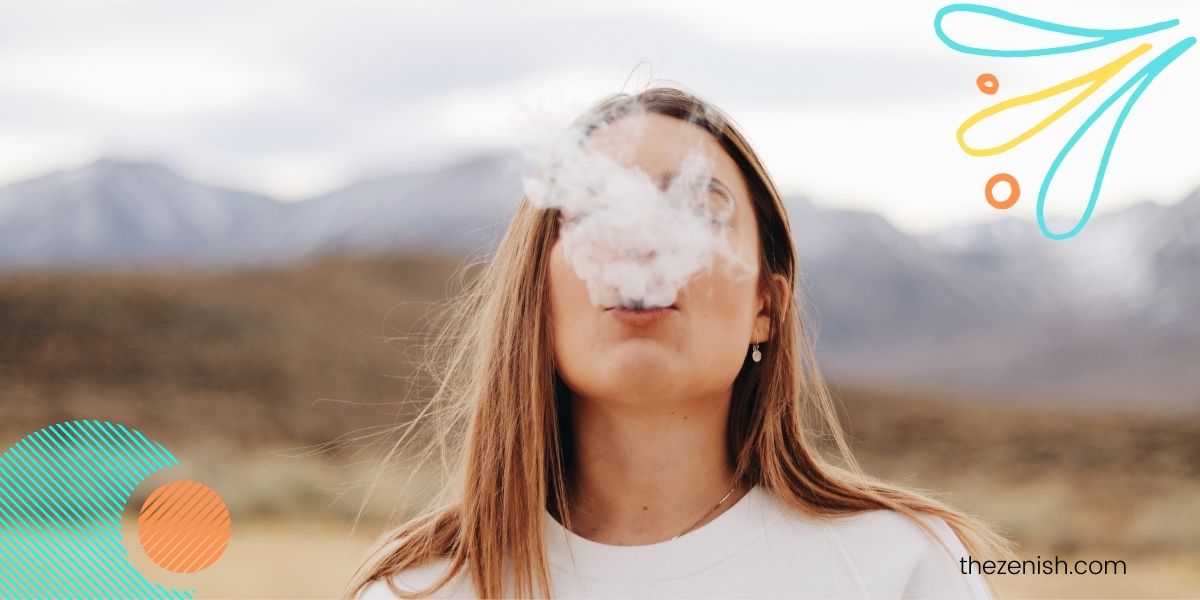The harmful effects of smoking are widely studied and documented, but one of the lesser-known consequences of smoking is how it affects your skin.
Smoking is a common cause of premature ageing and can result in wrinkles, dry skin and uneven pigmentation.

It also accelerates the process of ageing by depleting collagen and elastin, which are essential for healthy skin.
But does smoking cause acne?
Yes. Smoking does and can cause acne.
Smoking also causes premature ageing, changes in your skin texture, changes in your complexion, and can even change the thickness of your epidermis.
Skincare is a combination of many things. It requires not just a good skincare routine but making good choices in your diet and lifestyle habits.
Smoking is associated with a host of skin-related issues, including acne.
So whether your skin is oily, dry or a combination both if you smoke then it’s also adding to your skin woes.
| this post may contain affiliate links, which means if you purchase from one of these links, I may receive a small commission at no additional cost to you. |
Does smoking cause acne? How nicotine affects the skin
Nicotine is a chemical that is found in cigarettes and other tobacco products.
It passes from the blood through the skin, where it gets into the bloodstream.
Nicotine reduces the water content on your skin by causing excessive sweating, which causes dehydration.
Nicotine also increases your heart rate and blood pressure.
This can cause high blood pressure and high cholesterol, which contributes to poor circulation in the skin and can make your skin look unhealthy.
How does nicotine contribute to acne?
Nicotine seems to cause an imbalance in the immune system which changes how cells react in people with or without acne.
The nicotine can stop or slow down the healing process which allows bacteria to live and grow on the skin, leading to more inflammation and breakouts.
The nicotine in cigarettes has been found to act as a vasoconstrictor, which means that it can reduce the size of veins and capillaries.
The smaller blood vessels constrict, meaning that less blood flow reaches the skin.
The result is that your skin becomes more damaged than it would be otherwise.
5 ways smoking damages your skin
Here are 5 other changes you may notice in your skin if you’re a smoker.
1. Smoking causes premature wrinkles
Cigarette smoke contains toxins that damage collagen and elastin, which are the fibrous components of your skin that keep it firm and supple.
Without them, your skin hardens losses elasticity and develops deep wrinkles over time.
Smoking also causes premature ageing by narrowing the blood vessels in the eyes and face limiting the flow of oxygen.
This leads to stunted circulation that prevents nutrients from reaching cells which then contributes to a loss of elasticity and firmness.
Wrinkles form most often and are most noticeable on the face, but they also form on other areas of the body due to smoking.
Smoking can often cause sagging skin, particularly around the eyes and around the mouth.
If you’re a smoker, you’ll notice that wrinkles appear much earlier than it does for people who don’t smoke.
2. Smoking causes skin discoloration
Smoking causes skin discoloration by increasing melanin in the skin. Melanin is a pigment that gives colour to the skin, hair, and eyes.
This can lead to dark spots on the face. Holding cigarettes between the same fingers over and again can also lead to discoloration.
Nicotine and other toxins in cigarettes (commonly referred to as tar) will often cause the skin to take on a yellowish hue.
3. Smoking disrupts wound healing
Smoking is harmful to almost all parts of the human body, including the skin.
It disrupts wound healing by delaying skin regeneration at the site of injury and by increasing the risk of infection.
This means that your acne will take longer to heal and will more likely result in scarring.
The effects of smoking on wound healing are not limited to just acne.
Smoking has negative effects on blood flow, which can impair healing in general.
This includes blood flow to other parts of the body like your heart.
Smoking also increases the risk that you will develop complications like cardiac disease or pulmonary disease.
4. Smoking can cause Psoriasis
Studies have shown that when people smoke, they are more likely to develop psoriasis.
Psoriasis is an autoimmune disorder that impacts the skin cells and can cause red, violet or dark brown itchy patches on the skin.
People who smoke may have a higher risk of developing psoriasis because the nicotine in cigarettes affects the immune system and skin cell growth which all contribute to psoriasis.
Cigarette smoke contains over 4,000 chemicals and is known to increase the risk of skin cancer in smokers as well.
It can also cause severe health issues such as cardiovascular disease and stroke.
5. Smoking can lead to Vasculitis
Smoking puts you at an increased risk of developing vasculitis, an inflammation of blood vessels that can lead to serious complications.
Vasculitis is a condition in which the blood vessels become narrow and inflamed.
The inflammation leads to a thickening of the vessel walls and can lead to narrowing or obstruction of the vessels.
This can result in poor circulation and pain, with symptoms including tiredness, chest pains and numbness in the hands and feet.
More extreme cases of vasculitis can result in ulcers on the skin, which can turn into gangrene and result in the removal of the limb.
Will my skin improve if I stop smoking
The answer is – maybe.
There is no clear and definite answer to this question because there are too many other factors that can have an impact on one’s skin.
If you have been smoking for a long time, then it will take some time for your skin to recover from the damage that has been done.
In addition, it is possible that if you stop smoking now and start taking care of your skin more diligently, it might not be as affected as before by the damage incurred by smoking.



